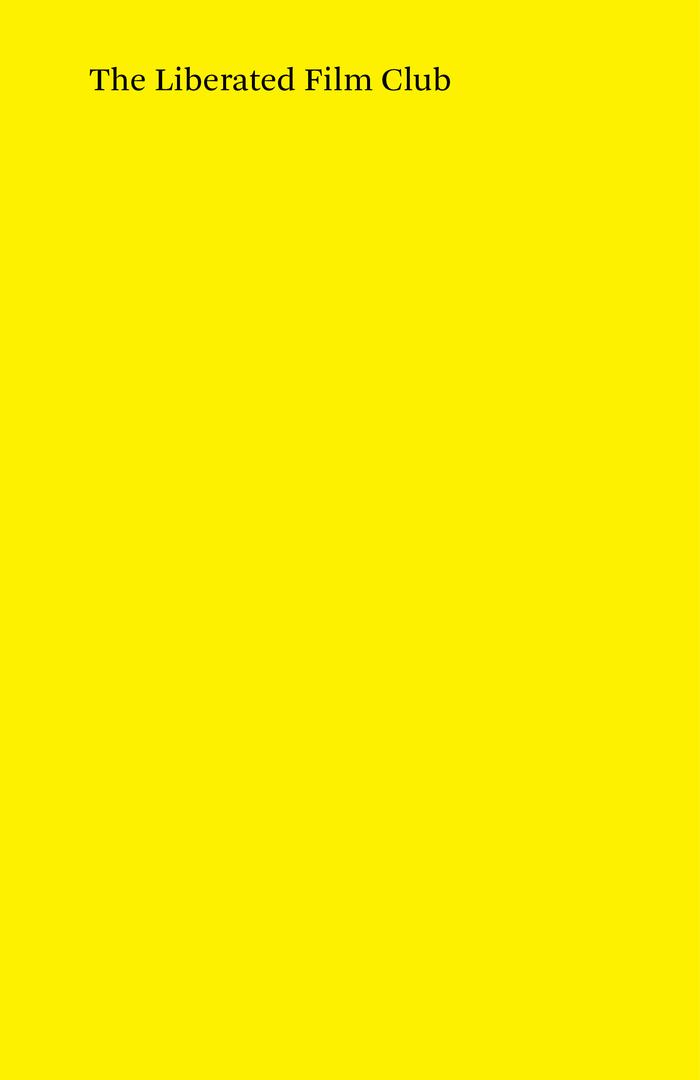Tai Shani
Tai Shani

Our Fatal Magic
Our Fatal Magic is a collection of feminist science fiction by contemporary artist Tai Shani. Foregrounding explorations of sensation, experience, and interiority, these twelve fantastical prose vignettes refract their ideas through a series of curious characters, from Medieval Mystics to Cubes of Flesh, from Sirens to Neanderthal Hermaphrodites. Drawing on the speculative narrative strategies pioneered by writers like Marge Piercy, Octavia Butler and others, Our Fatal Magic metabolizes new and necessary fictions from feminist and queer theory to propose an erotic, often violent space of critique in which gender constructs are destabilized, alternative histories imagined, and post-patriarchal futures proposed.
Tai Shani is a Tutor in Contemporary Art Practice at the Royal College of Art. Shani's multidisciplinary practice, comprising performance, film, photography, and installation, revolves around experimental narrative texts.
Published December 2019
And more

Spells: 21st Century Occult Poetry
Spells are poems; poetry is spelling.
Spell-poems take us into a realm where words can influence the universe.
Spells brings together over forty contemporary voices exploring the territory where justice, selfhood and the imagination meet the transformative power of the occult. These poems unmake the world around them, so that it might be remade anew.
Kaveh Akbar, Rachael Allen, Nuar Alsadir, Khairani Barokka, Emily Berry, A.K. Blakemore, Jen Calleja, Anthony V. Capildeo, Elinor Cleghorn, CAConrad, Nia Davies, Paige Emery, Livia Franchini, Alexis Pauline Gumbs, Will Harris, Caspar Heinemann, Lucy Ives, Rebecca May Johnson, Bhanu Kapil, Amy Key, Daisy Lafarge, Dorothea Lasky, Francesca Lisette, Canisia Lubrin, Karen McCarthy Woolf, Lucy Mercer, Hoa Nguyen, Precious Okoyomon, Rebecca Perry, Nat Raha, Nisha Ramayya, Ariana Reines, Sophie Robinson, Erica Scourti, Sarah Shin, Himali Singh Soin, Tai Shani, Rebecca Tamás, Bones Tan Jones, Dolly Turing, Jane Yeh, Flora Yin Wong
Introduced by So Mayer
Afterword by Sarah Shin

The Liberated Film Club
The Liberated Film Club—running from its birth to its death, 2016 to 2020—would guarantee a wide wing-span for critical conversation. Screening “Liberated film” (a loose category designed to scaffold the show), a guest would be invited to introduce a film; an audience seated to watch it through; but there’d be an interruption to that typical format. Neither the audience nor the guest would have any idea what film would be shown, and this anonymised format would invite broad and antagonistic perambulation on the what, the why and the how of film.
An interrogation of what we do when we sit in a cinema; a reckoning with the kind of posture we should assume when we frame a film for further talk. Playing with the various ways we should consider and reproach the institutions built around all of our cultures of making and the manners and methods of all of our cultures of consumption, the Liberated Film Club was a rare reflection on the act of reflection itself.
An anthology publication,
featuring contributions from
John Akomfrah;
Chloe Aridjis;
Dennis Cooper;
Laura Mulvey;
Chris Petit;
Mania Akbari;
Elena Gorfinkel;
Juliet Jacques;
Ben Rivers;
Dan Fox;
Sean Price Williams;
Adam Christensen;
Stewart Home;
Stephen Watts;
Tony Grisoni;
Gideon Koppel;
Astra Taylor;
Miranda Pennell;
Gareth Evans;
Adam Roberts;
Tai Shani;
Anna Thew;
Xiaolu Guo;
Andrea Luka Zimmerman;
William Fowler;
Athina Tsangari;
John Rogers;
Shama Khanna;
Shezad Dawood;
Damien Sanville;
& Stanley (& Winstanley) Schtinter.
(Eds.) Stanley Schtinter,
with Dominic J. Jaeckle
& Jon Auman

On Violence
Violence is in language and violence is language. The violence of language stratifies voices into those that matter and those that do not, using ideas of appropriate form and structure as its weaponry. It claims propriety and politeness are the correct mode of address, when urgency and anger are what is needed. Where languages intersect, hierarchies of language become means for domination and colonization, for othering, suppression, negation, and obliteration. The demand for a correctness of grammar, the refusal to see what is seen as incorrect, the dismissal of vernacular in favour of the homogenised tongue: all are violent. The narrative of history is a narrative of violence. The contributions herein refuse this narrative. They explore how violence permeates and performs in language, how language may be seized, taken back to be used against the overwhelming force of structural and institutional violence that passes as acceptable or normal. Violence may be a force for rupture, for refusal, for dissent, for the herstories that refuse to cohere into a dominant narrative.
Contributors: Travis Alabanza, Katherine Angel, Skye Arundhati-Thomas, Mieke Bal, Janani Balasubramanian, Elena Bajo, Jordan Baseman, Emma Bolland, Pavel Büchler, Paul Buck,Kirsten Cooke, Jih-Fie Cheng, John Cunningham, Andy Fisher, Caspar Heinemann, Jakob Kolding, Candice Lin, Rudy Loewe, Nick Mwaluko, Vanessa Place, Katharina Poos, Tai Shani, Linda Stupart, Benjamin Swaim, Jonathan Trayner, Jala Wahid, Isobel Wohl, Sarah Wood